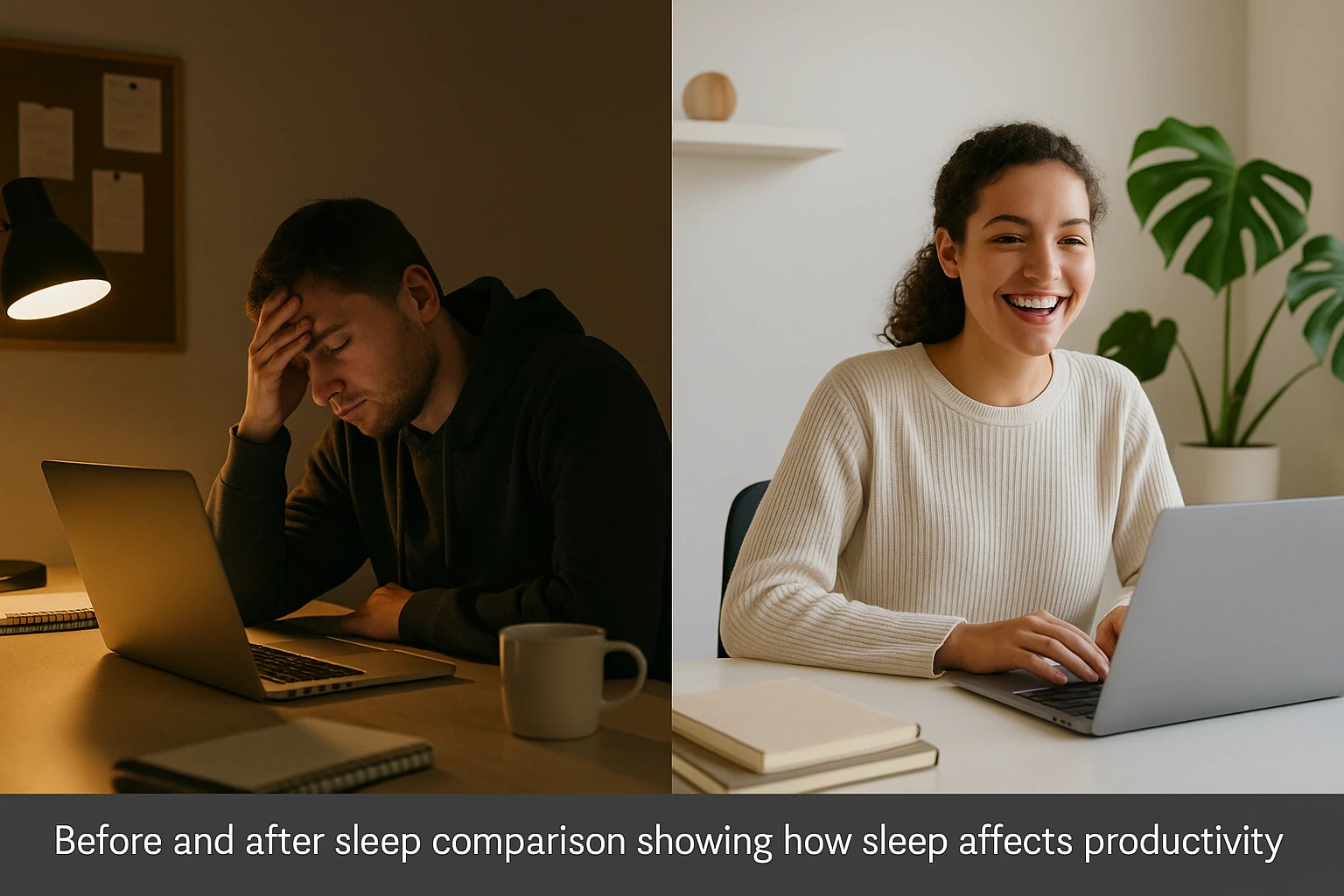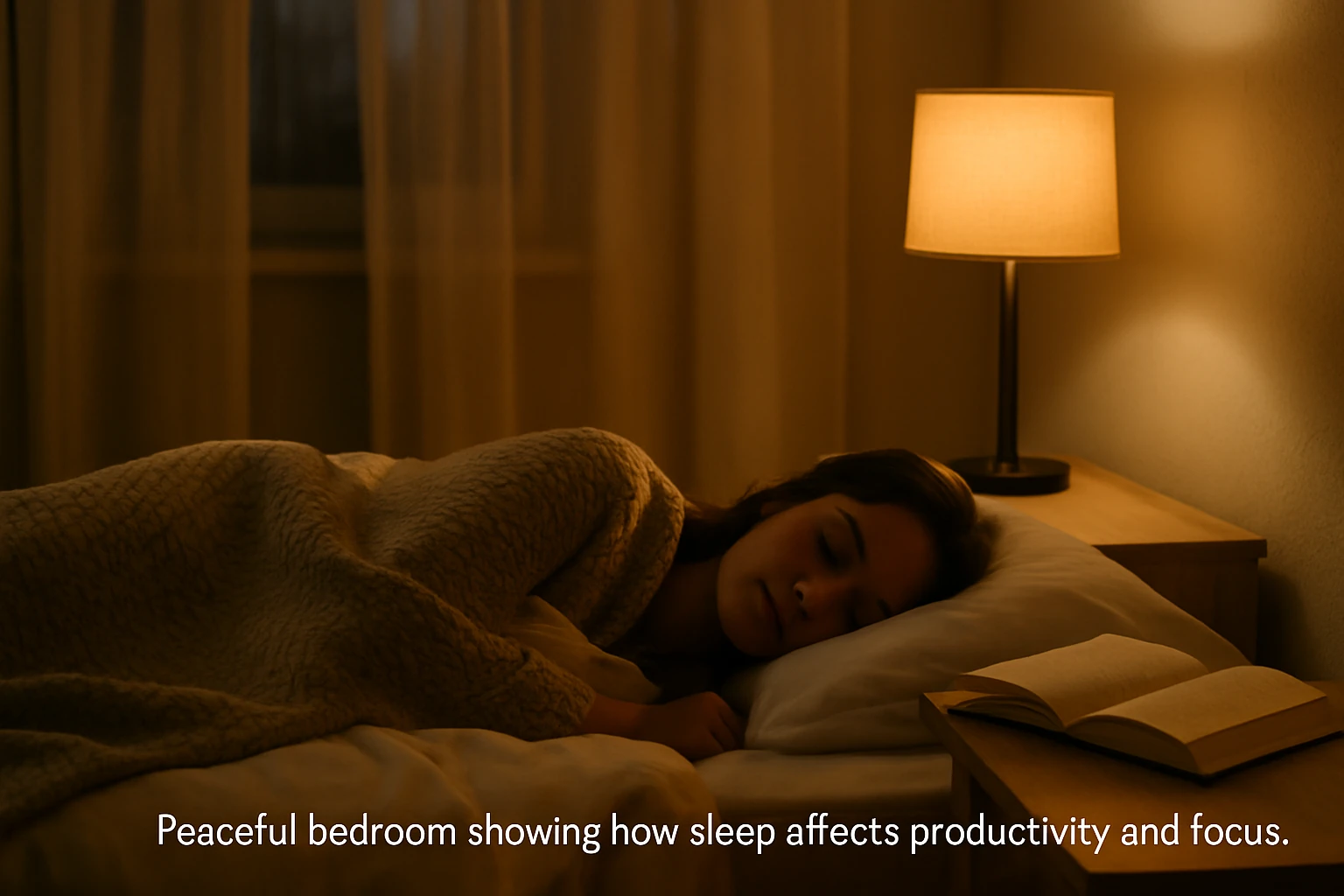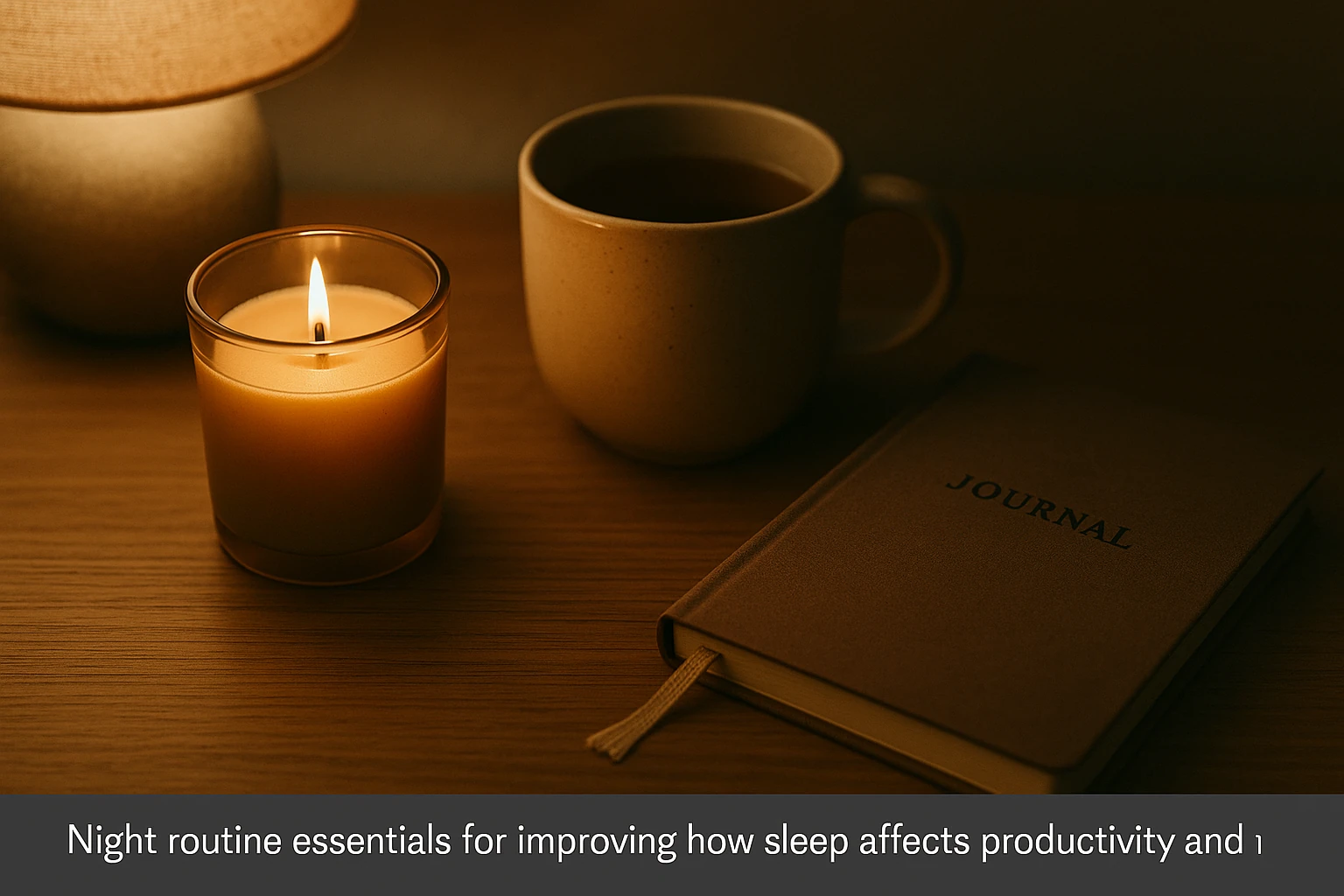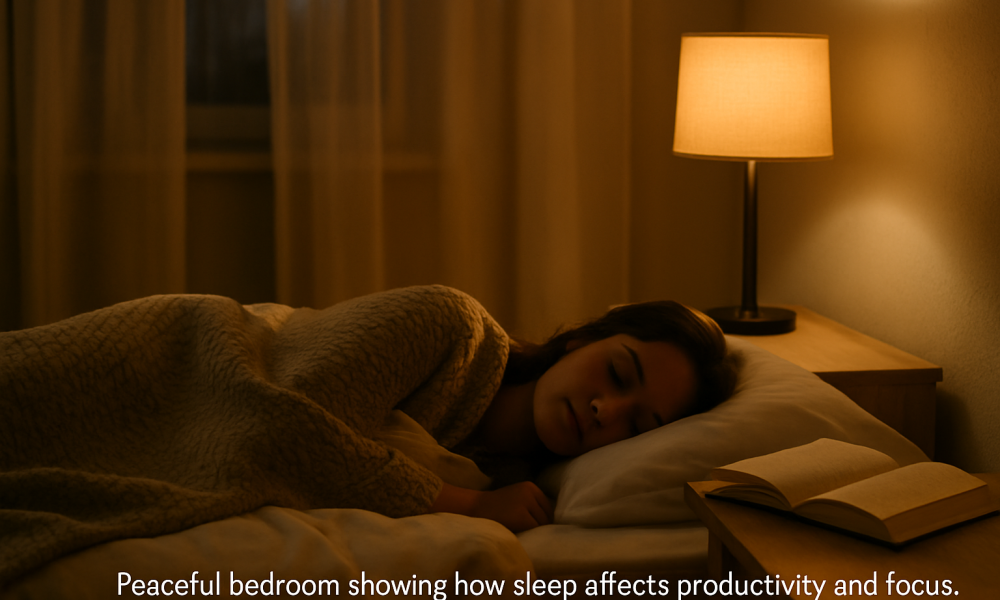How Sleep Affects Productivity and Focus: 7 Proven Tips
Struggling to concentrate or keep up at work? Discover how sleep affects productivity and focus, and learn practical strategies to rest smarter and perform better—starting tonight.
Key Takeaways on How Sleep Affects Productivity and Focus
- ✅ Quality sleep enhances memory, decision-making, and concentration.
- ✅ Sleep deprivation lowers performance, focus, and energy levels.
- ✅ A consistent sleep routine and habits can boost daily productivity.
- ✅ Addressing sleep disorders may significantly improve work outcomes.
Ever find yourself staring at your screen, struggling to concentrate, or making simple mistakes? You’re not alone. The connection between sleep and productivity is profound. Quality rest isn’t just about feeling refreshed—it’s about empowering your brain to perform at its best. In this guide, we’ll explore how sleep affects productivity and focus, the pitfalls of sleep deprivation, and practical strategies to enhance your rest for peak performance. For more in-depth science, see our pillar guide on sleep and the brain.

Why Sleep Matters in Daily Life
Think of your brain as a high-performance engine—it requires regular maintenance to function optimally. Sleep is that essential tune-up. Without it, tasks become more challenging, moods fluctuate, and energy dwindles. Prioritizing sleep isn’t merely about rest; it’s about unlocking your full potential.
🧠 The Brain Connection: How Sleep Affects Productivity and Focus
During sleep, your brain consolidates information, clears toxins, and enhances problem-solving abilities. Here’s how adequate sleep boosts cognitive performance:
- Enhances Memory Retention – Deep sleep aids in storing and recalling new information.
- Improves Concentration & Focus – Well-rested individuals process tasks more efficiently.
- Boosts Problem-Solving Skills – Quality sleep sharpens creativity and critical thinking.
- Regulates Mood & Motivation – Sleep deprivation can lead to irritability and decreased motivation.
🚫 The Impact of Sleep Deprivation on Productivity
Skimping on sleep can make even simple tasks feel like uphill battles. Here’s what lack of sleep can do:
- Slows Reaction Time – Increases the likelihood of mistakes and poor decision-making.
- Reduces Attention Span – Makes it harder to stay focused on tasks.
- Decreases Work Efficiency – Sleep-deprived individuals take longer to complete tasks.
- Elevates Stress & Burnout – Chronic fatigue can lead to frustration and quick burnout.
According to the Sleep Foundation, insufficient sleep significantly impairs cognitive function, making daily activities more challenging.

💼 Sleep & Work Performance: The Rest-Productivity Link
A well-rested brain isn’t just sharper—it’s a powerhouse of creativity, leadership, and resilience.
- Fosters Creativity – Rested minds generate more innovative ideas.
- Enhances Decision-Making – Quality sleep strengthens logical thinking and judgment.
- Boosts Energy & Stamina – Sleep fuels sustained productivity.
- Improves Leadership – Leaders who sleep well manage stress and teams more effectively.
A Timely study found that employees who prioritize sleep are not only more productive but also experience better physical health and mental clarity at work.

🛌 Sleep Hacks to Enhance Productivity & Focus
Looking to supercharge your workday? Implement these simple habits:
Maintain a Consistent Sleep Schedule
- Why? Irregular sleep disrupts your brain’s ability to stay focused.
- How? Set a consistent bedtime and wake-up time—even on weekends.
Follow the 90-Minute Sleep Cycle Rule
- Why? Waking during a light sleep phase helps you feel alert.
- How? Aim for about 7.5 or 9 hours of sleep (five or six 90-minute cycles).
Limit Blue Light Exposure Before Bed
- Why? Blue light suppresses melatonin, your natural sleep hormone.
- How? Avoid screens an hour before bed or use blue-light-blocking glasses.
Incorporate Power Naps
- Why? Short naps can reset your brain without causing grogginess.
- How? Keep naps to just 10–20 minutes.
Establish Morning Habits
- Why? A strong start sets the tone for a productive day.
- How? Get morning sunlight, hydrate, and avoid immediate screen time.
🌙 Crafting a Sleep Routine for Maximum Productivity
Creating a cozy nighttime ritual can significantly improve sleep quality:
Sample Productivity-Boosting Night Routine:
- 8:30 PM – Dim the lights and turn off major screens.
- 9:00 PM – Take a warm, relaxing shower.
- 9:30 PM – Engage in calming activities like reading or journaling.
- 10:00 PM – Use soothing scents like lavender.
- 10:30 PM – Ensure your room is cool, quiet, and dark for sleep.
For more ideas, check out how a nighttime routine helps you sleep faster.

🧪 When to Seek Professional Help
If you’re consistently feeling fatigued despite good sleep habits, it might be time to consult a specialist.
Signs You May Need a Sleep Specialist:
- Difficulty staying asleep or waking up feeling unrefreshed.
- Persistent concentration issues despite adequate rest.
- Frequent memory lapses or brain fog.
- Excessive daytime sleepiness.
FAQ
- How many hours of sleep do I need to stay productive?
- Most adults function best with 7–9 hours of quality sleep per night.
- Can napping improve focus and productivity?
- Yes, power naps of 10–20 minutes can boost alertness without disrupting nighttime sleep.
- What’s the best time to go to bed for productivity?
- Going to bed between 9:30 PM and 10:30 PM aligns with natural circadian rhythms for optimal rest.
Final Thoughts: Sleep Your Way to Higher Productivity
Your productivity, focus, and mental sharpness are deeply intertwined with the quality of your sleep. By prioritizing rest, you can enhance work performance, memory, creativity, and decision-making skills.
- ✅ Aim for 7–9 hours of quality sleep.
- ✅ Maintain healthy bedtime and morning routines.
- ✅ Observe the positive changes in your daily performance.
🌙 Start prioritizing your sleep tonight and watch your productivity soar tomorrow. You’ve got this!
Related reading from Cozy Bed Quarters
Other reading we found popular
- Practical Sleep Hygiene Tips
- How Sleep Impacts Productivity
- Ways to Create a Relaxing Bedroom
- Best Bedroom Lighting for Better Sleep























